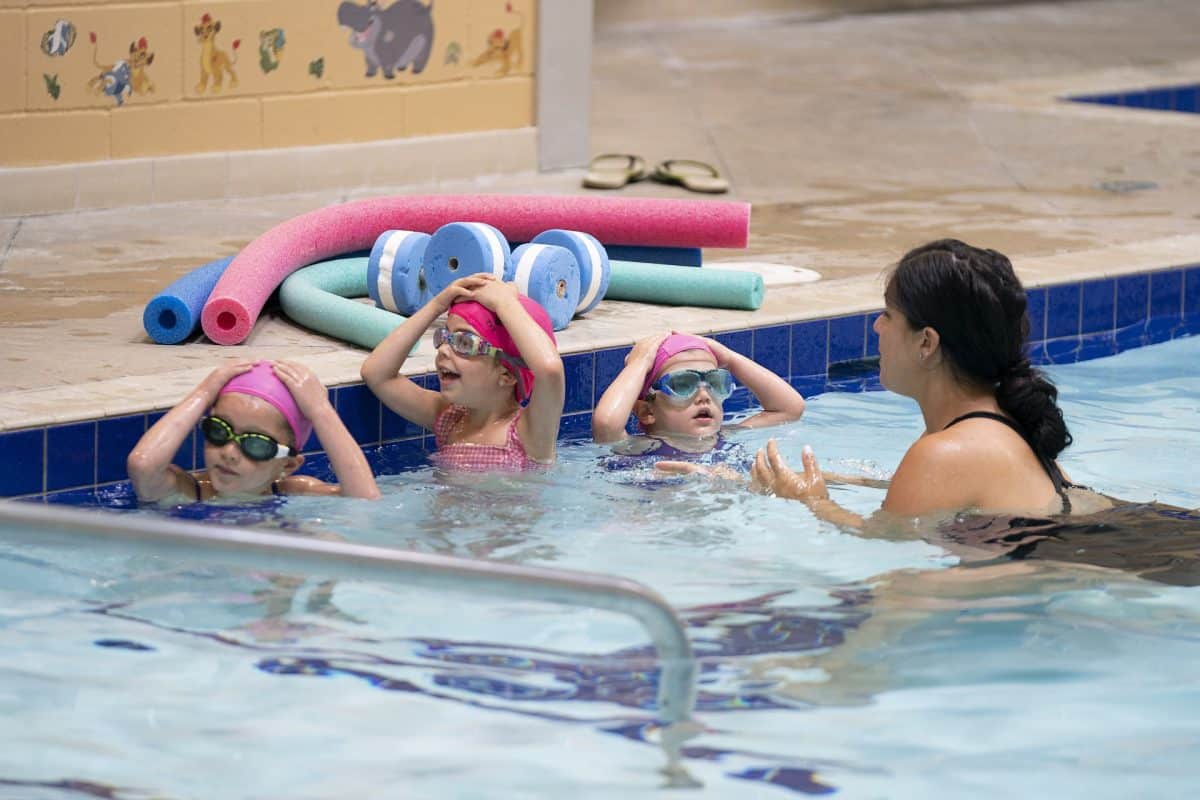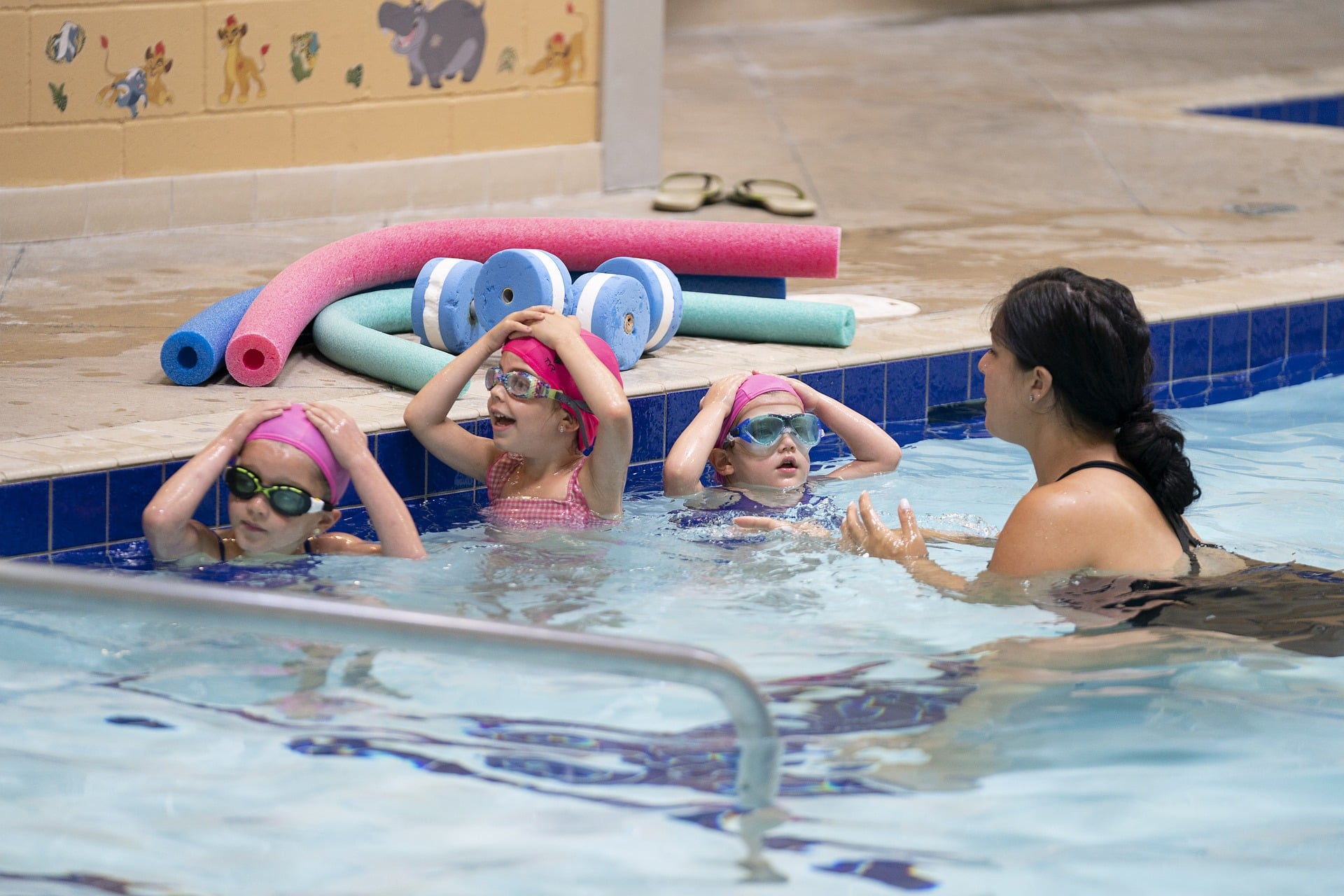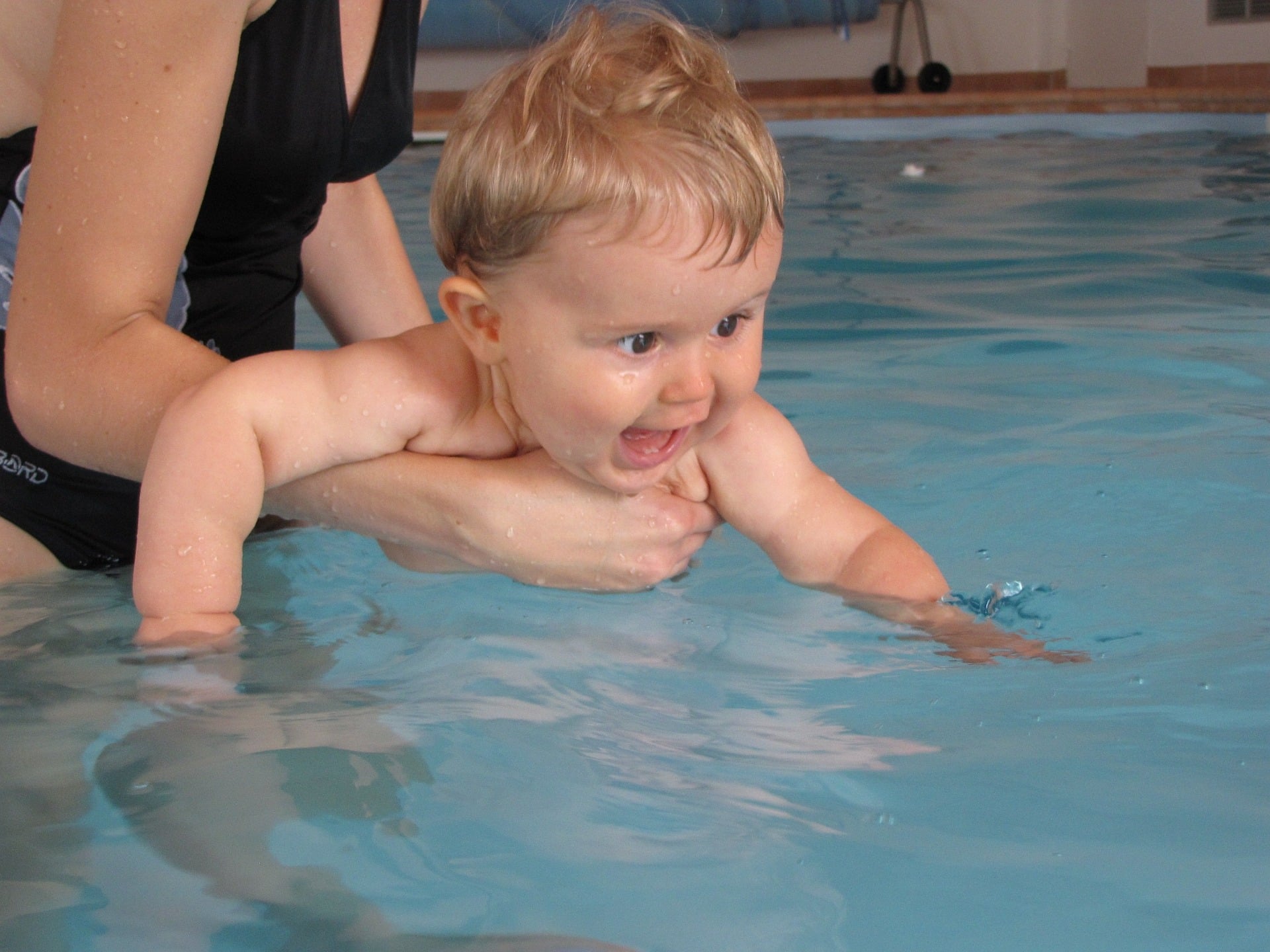The Benefits of Swim Lessons for Children

As we approach warmer weather, we get a lot of parent inquiries about swim lessons and swim safety. If you’ve asked yourself if infant swim lessons are necessary, or whether the lessons themself are safe, you’re not alone.
Swimming can be a wonderful way to bond with your child, but you want to make sure that your child has a healthy appreciation for the dangers that surround water play.
Read on for some of the unique benefits of swim lessons, the fun that they bring, and why it’s so important to start your child as early as possible so that they develop a healthy relationship with pools, beaches, and water parks.
Swim Lessons: What Are They?
Swim lessons come in a variety of different forms. From individual lessons to group lessons, there are many options for parents to choose from. No matter which one you choose, you should seek out a qualified swim instructor to ensure the safety of your child.
Sorry, but this means not letting Uncle Joe teach your child by throwing them in a pool and fending for themselves. Not only is that incredibly dangerous, but it could create a fear around water that can take a lifetime to overcome.
Learning to swim should involve calculated steps by a certified instructor. A certified instructor will have certain attributes that are unmatched by yourself (not to mention Uncle Joe) and they go through special training to make sure they not only know how to teach properly, but also can keep your child safe.
Group or Individual
It’s entirely up to you. Group lessons are likely cheaper and because you’re usually in the pool with them, can facilitate a natural bonding experience between you and your child.
Individual lessons are done directly with the instructor and your child may (or may not) learn faster due to the one-on-one attention.
There are pros and cons to each, but both are effective for learning water safety and how to swim.
Benefits Of Swim Lessons
Besides having fun and enjoying a relaxing day by the pool, there are a myriad of other benefits that coincide with swim lessons.
- Reduces the risk of drowning– Drowning is one of the leading causes of unintentional death for children in the United States and swim lessons reduce that risk.
- Low-impact/full body workout– While it’s true that kids play and get a lot of exercise, swimming provides a low-impact workout that may not be so hard on their developing bones. Swimming also helps them develop strength, flexibility, and endurance.
- Cognitive/social development– When children participate in swim lessons, they learn to interact with others and their instructor, learn life skills, and learn to solve problems.
Infant Swim Lessons
Infant swim lessons get a category all to themselves because there is a bit of controversy surrounding them. While the official recommendation is not to start lessons until at least the age of 12 months, there are some facilities that will do it earlier.
We like to adhere to the official guidelines and suggest that you wait until after your child’s first birthday to enroll them in swim lessons. While that does mean you’ll have to be a bit more vigilant around bodies of water, this gives your child the best chance of retaining what they’ve learned.
The best rule of thumb is to never assume that your baby is safe around the water and keep eyes on them at all times until they’ve perfected those swim lessons.
Swim lessons for infants and toddlers are typically focused on growing accustomed to the water and building confidence. Rather than focusing on skills, the focus is on building a solid foundation of water safety for the future.
Much like swim lessons for older children, infant swim lessons also help with strength, mobility, and flexibility.
Concerns
With the excitement of swim lessons, also come some parent fears. Some worry about ear infections, and others worry about dry drowning.
Ear Infections
With swimming comes water in the ears. Luckily, there are some steps you can take to prevent ear infections from occurring so that you can continue your lessons (and summertime fun).
Make sure to dry your child’s ear (inside and out) thoroughly after a lesson. This helps to prevent water from sitting in the canal of your ear and harboring bacteria.
You can also consult your pediatrician for some ear drops that you can use after swimming.
Dry Drowning
According to Cedars Sinai, dry drowning is grossly misunderstood. While it does exist, it’s not in the fashion that most people imagine. Preventing accidental submersions or “near drowning” events is key to preventing dry drowning.
Most dry drowning incidents occur if the child in question lost consciousness at the scene. When that happens, your child will be assessed and watched carefully by their health care provider so any incident of dry drowning will likely be caught and monitored.
In the case that your child is home with you, look out for fast or labored breathing, change in the color of the skin, their chest sucking in when breathing, lethargy, and altered mental status.
Conclusion
Swim lessons are a vital tool in preventing one of the leading causes of death in children. There are many different options and price points when it comes to lessons so that it’s available to most families who want to pursue them.
From low-impact exercise benefits and water safety skills, to cognitive skills and socialization, swim lessons contribute to the overall well being of a child.
For questions regarding swim lessons, or any other health matters, give us a call. We are always here to help.
Kid Care Pediatrics
Kid Care Pediatrics has been in existence since October 2001. It was established by Omar A. Gomez, M.D. The practice philosophy at Kid Care Pediatrics is to provide quality pediatric medical care for children in a professional yet caring manner.



